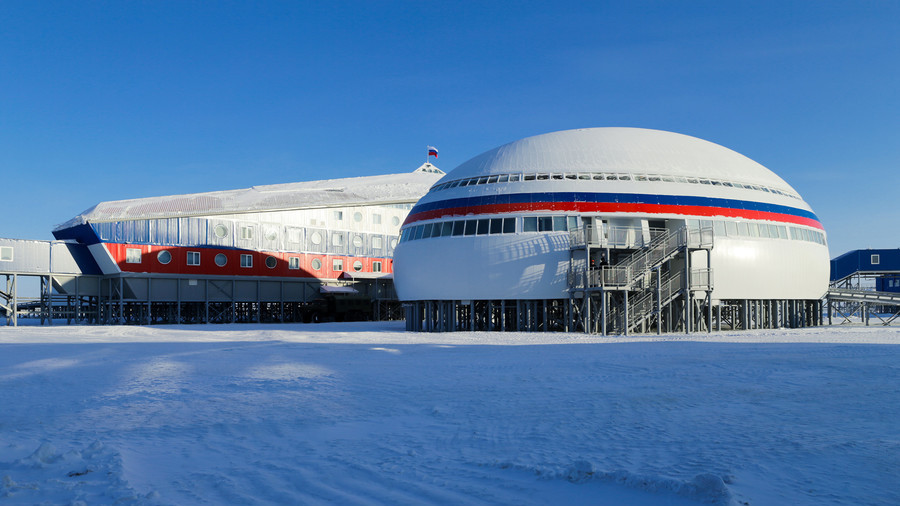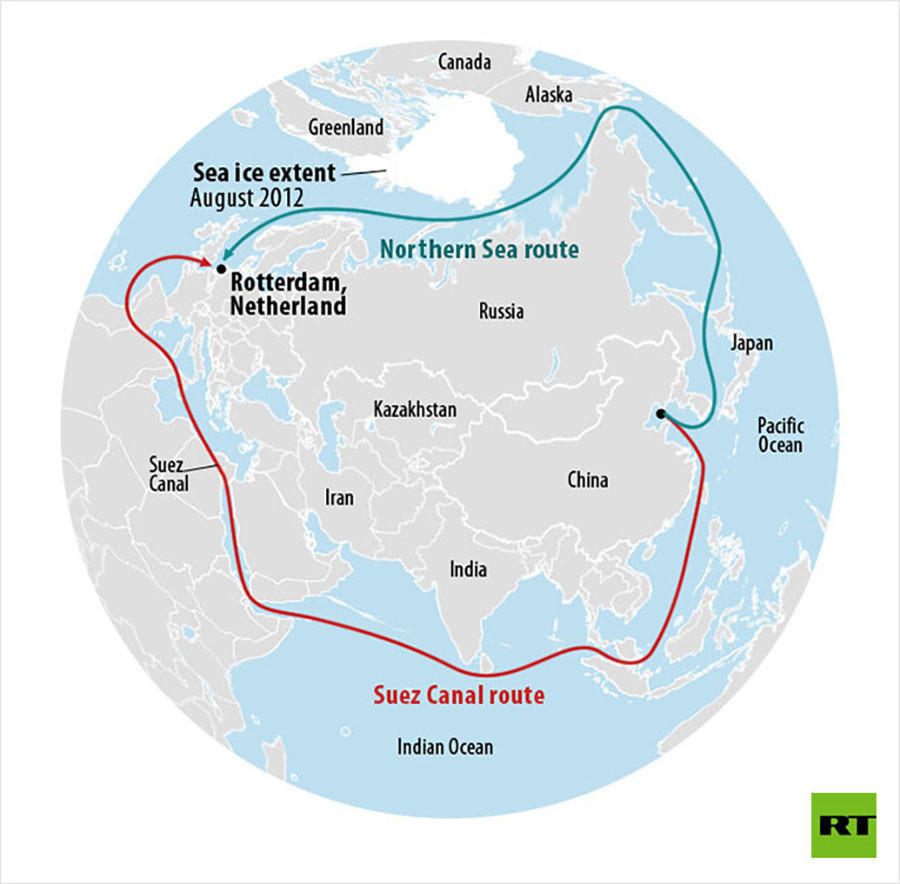December 26, 2017

Russia's Arctic Trefoil base located on the island of Alexandra Land – the westernmost major island of the Franz Josef Archipelago.
© Vadim Savitsky / Sputnik
Russia has widely expanded its control over its Arctic territories, and the unique infrastructure it has built in the Polar region is unmatched by any other country, Russian Defense Minister Sergey Shoigu has said.
“Throughout the history of Arctic exploration and reclamation, no other country has built so many [infrastructure] objects equipped with such technology and possessing such levels of capacity in the fields of power saving, as well as military capabilities,” Shoigu said, addressing a plenary session of the Public Council of the Russian Defense Ministry on Monday.

Russia’s northernmost military base, the Arctic Trefoil, located on Alexandra Land island in Franz Josef Land, northwest Russia.
© Vadim Savitsky / Sputnik
The minister went on to say that major construction projects in the Arctic are “almost finished,” and that alongside Russia’s western regions, the Arctic would remain a priority area for military infrastructure development in the future.
The Russian Defense Ministry has described its construction efforts in the Arctic as “unprecedented.” According to the ministry’s website, the military have built as many as 425 infrastructure objects in the Polar region, with a total area as vast as 700,000 square meters. The existing bases already host as many as 1,000 servicemen alongside special weapon systems and military equipment.
Russia has four fully functioning military bases in its Polar regions. One has been built on the island of Alexandra Land – the westernmost major island of the Franz Josef Archipelago, another on Wrangel Island in Russia’s Far East and two more on the New Siberian Islands Archipelago. The military are also completing the construction of an airfield on the Franz Josef Archipelago, said to be capable of accommodating airplanes all year round by 2020.
Of particular interest is Russia’s northernmost military base, called Arctic Trefoil. The unique base is the world’s only permanent infrastructure facility built in the area located 80 degrees of latitude north of the Equator.

Russian President Vladimir Putin and Prime Minister Dmitry Medvedev visit Acrtic Trefoil base located on Alexandra Land island in Franz Josef Land, northwest Russia, on March 29, 2017. © Ekaterina Shtukina / Sputnik
The autonomous complex, which occupies an area of 14,000 square meters, allows up to 100 people to live and work there for as long as a year and a half without any external support. The base has its own power station as well as a water purification plant capable of producing drinking quality water out of snow.
Brand new heat-saving technologies were used in its construction. The base also has a number of recreational facilities for its personnel, including a cinema, a fitness center, billiard room and tennis court, as well as a greenhouse with living evergreen plants. All buildings at the base are connected by heated galleries.
The Russian military also plan to equip the troops stationed in the Polar regions with new weapons specially designed to withstand extremely low temperatures. In 2018, the Russian military plan to deploy the new Tor-M2DT anti-aircraft weapon systems to the Arctic, Lieutenant General Aleksandr Leonov, who is in command of the tactical air defense units within the Russian Armed Forces, told the Russian media.
A standard version of this anti-aircraft system can hit its targets at a distance up to 15 kilometers and a height of up to 10 kilometers and could remain functional at temperatures ranging from 50 degrees above zero to 50 degrees below zero. Recently, Russian engineers have developed a new version that can operate under even harsher conditions.
The Arctic remains a strategically important region for Russia both in terms of economic development and providing national security, military and political analysts told RT. “Up to 40 percent of rare earth materials, as well as some 30 percent of gas and oil reserves, are located [in the Arctic regions],” said Viktor Litovkin, a military observer at the TASS and RIA news agencies.
The region also provides one of the most efficient sea trade routes between Europe and Asia, which allows ships to reach their destinations twice as fast as traditional sea routes. Russia has to provide “navigation, ice breakers and radio installations for this Northern Sea Route,” Litovkin explained, adding that Moscow needs to maintain its presence in the region to make this all possible.

The Northern Sea Route is a “trade route of the future,” Andrey Koshkin, the head of the chair of sociology and political sciences at the Russian Plekhanov University of Economics, told RT, adding that many countries, including China, are increasingly taking an interest in using this route in their international trade.
The Polar regions also have strategic security importance for Russia as foreign military vessels, including submarines, armed with missiles could potentially threaten key Russian military and civilian infrastructure, particularly in Siberia, in case they get free access to the Arctic Ocean waterways near Russia’s northern borders, Litovkin said. “Russia has everything to protect its Arctic territories from any foreign infiltration,” he added.
